The INFJ Shadow Functions: A Guide
Have you ever wondered how the INFJ’s shadow functions impact you? Whether you’re an INFJ or close to one, the shadow can creep up and cause both negative and positive impacts in your life. Today we’re going to dive much deeper than most people do into the psyche of the INFJ. I hope you enjoy the ride!
“Knowing your darkness is the best method for dealing with the darkness of other people.”
– Carl Jung, INFJ
Not sure what your personality type is? Take our thorough personality questionnaire here. Or you can take the official MBTI® here.
An intro to the INFJ:
INFJs are complex, insightful individuals who rely primarily on four cognitive functions: Introverted Intuition, Extraverted Feeling, Introverted Thinking, and Extraverted Sensing. This combination of functions helps the INFJ to gain insights into people, situations, as well as spot patterns, ripple-effects, and likely outcomes.
INFJ “Mystics” harness their intuition, empathy, and pattern-recognition to form forecasts of what could happen in the future. They want to make a difference in the world, to help people, to guide the world towards a better future. As Idealists, the world of the possible is more fascinating to the INFJ than the world of what “is.” Because of that, they have a reputation for being dreamers, even diviners of sorts.
But what about the INFJ’s shadow? Today we’re diving really deep into type theory to look at the INFJ’s shadow functions. This may seem confusing if you’re brand new to type and have just learned your four-letter code. If so, you could start with a beginner post like What Is An INFJ?
The shadow functions are the most unconscious functions of the INFJ, and they can show up at times when the INFJ feels they are “not themselves” or are acting in a way that seems foreign to them. These functions may also be hard for an INFJ to see in themselves. We’ve all had those moments where we see someone say “I NEVER do that” and we have to hold our tongues because have seen them do exactly that thing. Often, those “I never do that” feelings come because we haven’t consciously caught ourselves in the act of acting in our shadow. We don’t want to accept that those behaviors, worldviews, or perspectives are part of “us.”
The shadow can also show itself when someone is extremely stressed, under immense pressure, or has a strong negative reaction to something that threatens their ego or identity.
Not sure what your personality type is? Take our new personality questionnaire here. Or you can take the official MBTI® here.
What Carl Jung Believed

What Is Projection?
A narcissist who lies constantly believes that everyone else is lying about everything and feels that they can’t trust anyone. They have projected their own dishonesty onto others who may actually be honest and truthful.
We all tend to have poor control of our own shadow functions because they are so unconscious to us. When we see other people using these functions, even in a positive or advanced way, we may project our own negative use of these functions onto them. Like the lying narcissist who can’t trust anyone, the INFJ who has Introverted Sensing in their shadow functions may not trust or respect someone else’s positive use of Introverted Sensing.
What are the INFJs Shadow Functions and How Are They Used?
Shadow functions are often the source of the negative and unhealthy aspects of our personality. They are the parts we’re ashamed of, that show up when we “lash out” at others, behave in ways we regret, or exhibit a loss of control. They may show up in our dreams and cause us to act in our dreams in ways that are completely unlike us.
But shadow functions aren’t all bad. They can also be a source of enlightenment, depth, or humility. When we become aware of our shadow, we become aware that we are imperfect. Many people spend their whole lives being unaware of their shadow, but when it becomes apparent, we can have more humility, realizing we are not infallible or beyond reproach.
At the same time, knowing our shadow can help us to realize the blind spots we may have in our natural view of things. We can see that perhaps we should pause and consider the perspective of functions that don’t normally come naturally to us. Thus our perspectives and decisions can be more balanced and mindful.
We usually aren’t very aware of our shadow functions, because they are in such opposition to our primary cognitive functions. You can see this if you take a look at the functions side-by-side (above).
Because the shadow is largely unconscious, and we don’t associate it with our “true” selves, it almost never completely take over our personalities. Instead, it stays in the background, we don’t truly identify with it, but it may “speak” to us throughout the day when we experience stressors or threats to our ego.
The Names of the INFJ Shadow Functions:
The 1st shadow function, Extraverted Intuition, is labeled The Opposing Role.
The 2nd shadow function, Introverted Feeling, is labeled The Critical Parent.
The 3rd shadow function, Extraverted Thinking, is labeled The Trickster.
The 4th shadow function, Introverted Sensing, is labeled The Demon.
The Opposing Role

What Is Extraverted Intuition?
Extraverted Intuition is the ability to see how one thing could lead to many complex alternatives. It sees limitless possibilities and potential outcomes. People who have proficient use of Extraverted Intuition (Intuitive Perceivers) are extremely flexible and open-minded and regularly modify their viewpoints based on new information.
The Difference Between Extraverted and Introverted Intuition
INFJs have a strong use of Introverted Intuition, which means they tend to be more single-minded in their focus, connecting all the dots to form one major conclusion or insight. Once they have formed that insight and reflected on it, they hold to it very tightly. This gives the INFJ their characteristic resolve and belief in their revelations. Extraverted Intuitives tend to see many possibilities and insights and are more frequently changing their minds about them. This makes them more open-minded, but while the INFJ is at risk of being called stubborn, the Extraverted Intuitive is at risk of never settling on a clear conclusion.
The INFJ uses Extraverted Intuition (Ne) in a largely unconscious way. They respect it and are intrigued by it, but consciously have a hard time controlling it. If someone challenges one of their insights or their core revelations, the Opposing Role may come into play and the INFJ may use Extraverted Intuition in a confused, haphazard way to try to confirm their beliefs.
This process can look like being oppositional with someone who is skeptical of your ideas and posing hypothetical questions to get them stumped or make them see how narrow-minded they are. It can also look like seeing absurd possibilities in a moment of stress and worrying you’ll act on them (for example, “What would happen if I drove my car off this bridge? I really could do it!”)
While INFJs can enjoy brainstorming and thinking about numerous possibilities, much like Intuitive-Perceivers can, they can become overwhelmed if these possibilities cause them to doubt their visions or take them out of their preferred focus. Because of this, they may get impatient with people who constantly bring up alternative possibilities rather than focusing on the one idea they’re trying to present.
The Critical Parent
The INFJ’s second shadow function, and sixth cognitive function, is labeled The Critical Parent. Why? The critical parent is the nagging, harsh voice in your head that tells you that you have failed, that you’re not good enough, or that you’re doing something poorly. It can also use this same voice in judging others. For the INFJ, the critical parent role is filled by Introverted Feeling.
What is Introverted Feeling?
Introverted Feeling is a strong awareness of one’s own values and beliefs and emotions. It is more concerned with one’s own subjective values than the emotions and desires of others. People who have a strong use of Introverted Feeling (INFPs and ISFPs) hold very fast to their personal morals and emotions, and try to live in accordance with them. While they may be extremely open-minded and empathetic to others, they will not personally go against anything that doesn’t strongly align with what they believe is right for them. What they believe is important is independent of social norms and environmental factors. They form their sense of how to be based on their own deeply-held personal beliefs. Because of this, they are individualists.
Rather than being social chameleons (as FJ types tend to be), Introverted feelers march to the beat of their own drum. They don’t want to be influenced by others’ moods and expectations, they want to stay who they are at all costs. In turn, they are private with their feelings and keep their emotions more internalized, not feeling the need to share them with others or get affirmation that their feelings “make sense.”
How Introverted Feeling Affects the INFJ
INFJs, who use Extraverted Feeling as their second primary function, are extremely aware of other people’s emotions but far less aware of their own. They have a harder time saying “no” to things they don’t want to do because they are so concerned with maintaining harmony. It can be challenging for them to define how they feel or what they want or need. This is why many INFJs become suddenly indecisive when asked what they want to do for the night, what food they want to eat, or how they feel about a rule or agenda. When asked to express what they want, the INFJ feels selfish and worried about giving the wrong answer. They like to know first what other people want, and then they may tailor their answers based on the other person’s needs and desires. An Introverted Feeler would have a much easier time describing what they want and expressing it (unless they have a 9 Enneagram type).
Introverted Feeling manifests itself in the INFJ as an internal criticizing voice. “Why can’t you make up your mind? Don’t you stand for anything? You are such a fake. You have failed to uphold your own standards.” It can also express itself in judgments the INFJ makes upon others; “That person is being fake.” “That person is a phony,” “That person has no real values or morals!” Normally the Critical Parent function will only show itself in times of extreme stress where something important is at risk. When it is engaged, it can overpower us and cause major damage to ourselves and our relationships.
The Trickster

The trickster function, sometimes referred to as the deceiving function, fools you into thinking that something is important to do in defense of your ego. It causes you to see yourself and others in a false light and it distorts your experiences so that you misunderstand them and react to others in an overly critical or defensive way.
Typology experts say that the Trickster comes out when there is a threat of ego disintegration. So the trickster may come out when your self-identity and self-esteem are vitally threatened.
For the INFJ, the trickster role is fulfilled by Extraverted Thinking (Te). INFJs are not normally skilled at using this function and can make mistakes in perception or decision-making when trying to use it.
What is Extraverted Thinking?
Extraverted Thinking makes decisions based on objective facts and logic from the outside world. Extroverted Thinkers like to control and organize their outer world in a way that is effective and efficient. This makes them excellent at delegating and leading; gathering everyone and telling them what to do to achieve a goal in a timely way. Extraverted Thinking types consider logic and pros and cons when making a decision, and are less concerned with harmony and the emotions of people involved.
How INFJs Use Extraverted Thinking
An INFJ may project their poor Extraverted Thinking abilities onto another person who is effectively using Extraverted Thinking. For example, an ESTJ may try to organize or delegate to the INFJ in some way. They are very proficient at this, but the INFJ may naturally bristle at this strong display of Te. They may think, “You’re trying to control me! You are such a power-hungry animal! I will not let you do this so I will try to exert my control over my own life and system back to you!” The only problem is that the INFJ has poor conscious control over Te and may try to use it in a way that is completely inefficient or has logical loopholes. They may also read into what the ESTJ is doing and distort it into a different experience or motive. The ESTJ may be, in actuality, trying to help the INFJ, yet the INFJ sees it as an effort to try to control them and claim ownership of them.
The Demon

The demon is the most suppressed area of your unconscious personality. It feels the most “other” of all our functions and our failures in this area tend to be the most damaging. We may struggle with relating to people who use this function in the dominant position, because our experiences with it are so negative and because we don’t connect with it consciously except in very rare, disquieting cases.
“The Demon is what we need to be ashamed of-the flaw in our character for which integrity exists and is needed.”
– John Beebe
The INFJs Demon function is Introverted Sensing. This means out of all the eight cognitive functions, this is the one they have the least conscious control over.
What Is Introverted Sensing (Si)?
Introverted Sensing (Si) is the storing and recall of past data and experiences. Introverted Sensors usually have an excellent memory for details, and can look on the past with fondness and appreciation. They look at what has worked well in the past, what is the “tried and true” method, and try to apply it to the present moment.
Si-users (Sensing Judging types) enjoy rehashing the past and can easily tell if something doesn’t match up with past experience. They are quick to see inconsistencies, to notice changes, and to spot abnormalities. When a Si-user experiences something in real-time, they quickly compare it to something they’ve experienced in the past to see if it matches up.
Another interesting facet of Introverted Sensing is that it gives one an awareness of what’s going on inside the body. Because of this, Si-users (SJs) can rapidly tell when something inside is “off.” This can show up as sensing they are becoming ill before another type would notice it, being highly attuned to whether they are hungry, thirsty, or tired.
How INFJs Use Introverted Sensing
Because Introverted Sensing is the INFJs Demon, it normally reflects itself in very negative ways. The INFJ can often be haunted by the past and skeptical of it. They see only what was negative about the past or only the mistakes they made. They may only see the mistakes and failures of others as well.
During moments when an INFJ feels attacked or defensive, they may counter-attack by listing off someone’s past failures in great detail. Embarrassments or mistakes that they might ordinarily be hesitant to verbalize will be laid bare to put the other person in a state of vulnerability or shame.
In turn, they can turn this process in on themselves. They may pinpoint all their mistakes and failures as signs that they will never be anything but a disappointment or a failure. They may become immersed in their past trauma or regrets and unable to get out.
When in the realm of the Demon function, the INFJ can also become completely incapable of holding onto any details accurately and may distort past details to fulfill their vision of failure and hopelessness.
Can the Shadow Functions Ever Be Positive?
Because the shadow functions are so unconscious in nature, it’s hard to ever have very strong control over them. We identify most strongly with our primary functions; these make up our identity and ego.
The shadow functions feel more like strangers inside of us or unwelcome guests. They may seem to shout out thoughts or ideas into our minds that are unwelcome or outside of our conscious control. None of this sounds good, does it? But the truth is, these arguments and thoughts can help us to have balance if we can only be aware of them when they show their faces.
As an INTJ myself, if I over-use Introverted Intuition, then my Extraverted Intuition shadow helps me to see things from another angle. If an INFJ is overdoing it with Extraverted Feeling and losing touch of their own inner values and morals, that Critical Parent of Introverted Feeling may scold them enough that they may stop and consider what their intrinsic values are.
There are times when the Shadow functions are necessary evils in our lives, but there’s a fine line between learning from them and being destroyed by them. We should try to keep our eyes open and be aware of their existence, but most typologists and psychologists suggest we should try not to focus on them too extensively. It is better to focus on gaining control over our primary functions and to be cautious about how we react when the shadow functions try to take control.
Trying to “practice” using the shadow functions can result in further disintegration and confusion in our lives. It would be like telling a left-handed child they need to practice using their right hand proficiently. It will only cause them to feel frustrated, insecure, and hopeless. Yes, being aware of them is helpful, so that when they do try to get into our lives we can acknowledge that we may be feeling irrational. It can also help us to determine whether we should try to see something from another point of view. But I wouldn’t spend vast amounts of time trying to “master” the shadow. Instead, one should make peace with it, learn from it, and during moments of relaxation, try tapping into it for just a few moments to see what you can learn.
What Are Your Thoughts?
Do you agree or disagree with this article? Do you have any insights based on your own experiences? Let us know in the comments!
Find out more about your personality type in our eBooks, Discovering You: Unlocking the Power of Personality Type, The INFJ – Understanding the Mystic, and The INFP – Understanding the Dreamer. You can also connect with me via Facebook, Instagram, or Twitter!
As a thank you for subscribing to my newsletter I will send you this free eBook PACKED with self-care tips, creativity hacks, and more! You'll also get a 3-day email course for understanding your personality type better!
Get Your Free INFJ eBook
References:
Depth Typology: The Guide Map To Becoming Who We Are by Mark Hunziker (Write Way Publishing, 2016)
Energies and Patterns in Psychological Types by John Beebe (Routledge; 1st edition (June 22, 2016)
Understanding Yourself and Others® An Introduction to the Personality Type Code by Linda V. Berens and Dario Nardi (InterStrength, 2004)
Understanding the Archetypes involving the eight functions of type (Beebe model)
This post contains affiliate links. I only recommend products I truly believe in.
Get Your Free INFJ eBook
As a thank you for subscribing to my newsletter I will send you this free eBook PACKED with self-care tips, creativity hacks, and more! You'll also get a 3-day email course for understanding your personality type better!



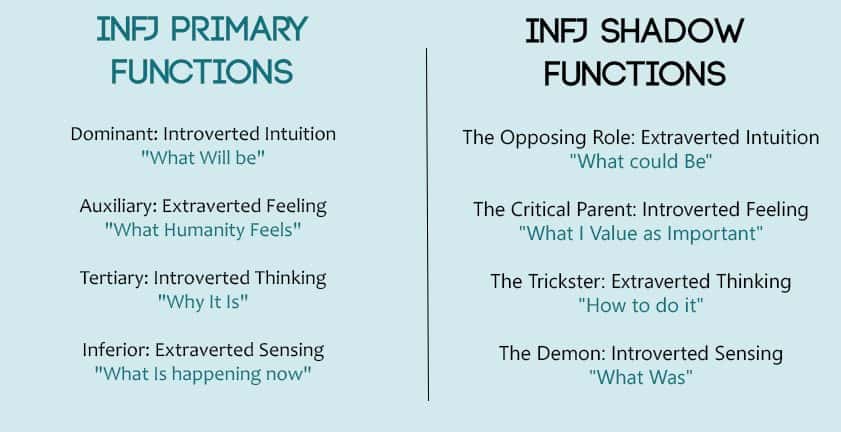


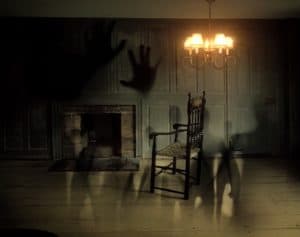
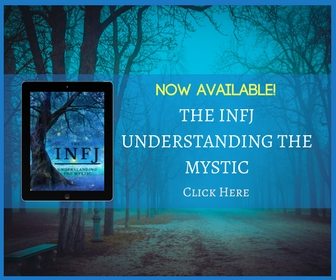
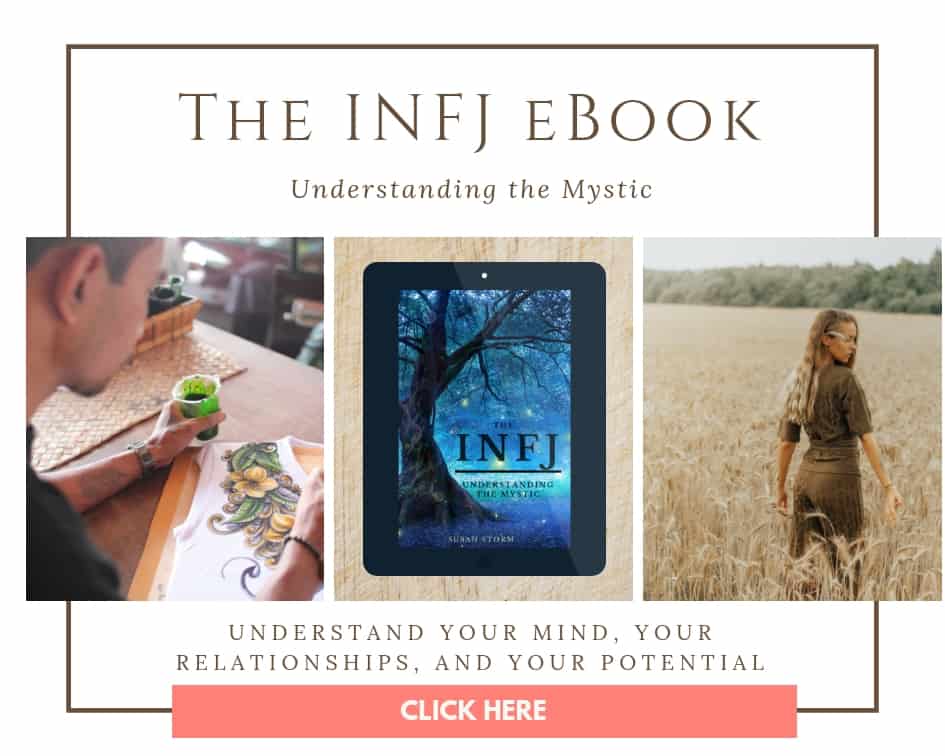
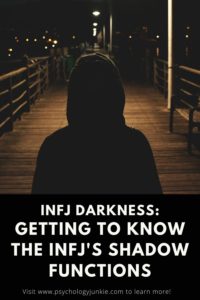
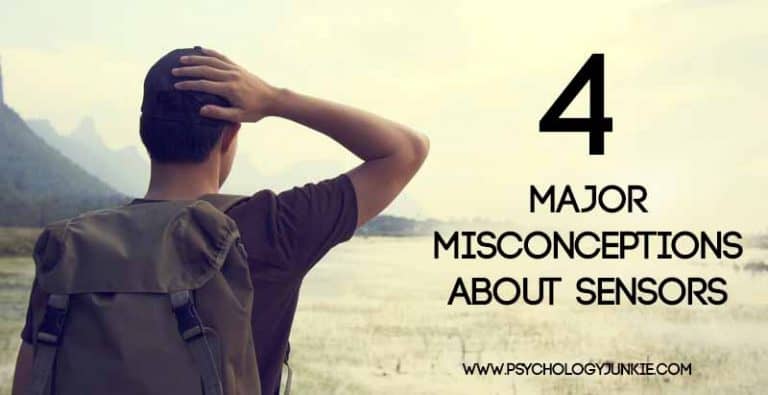
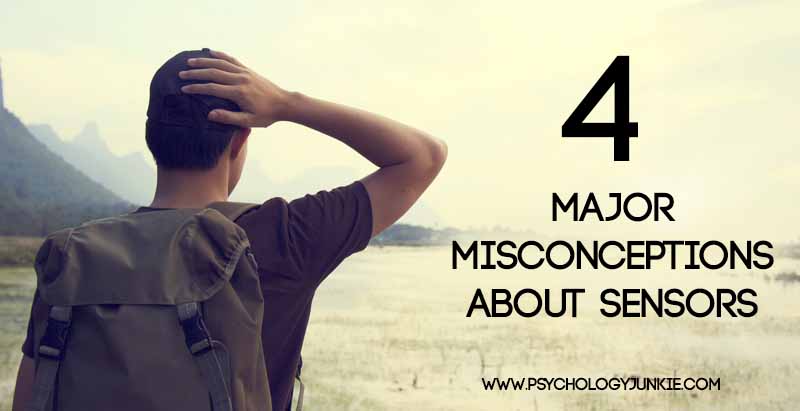
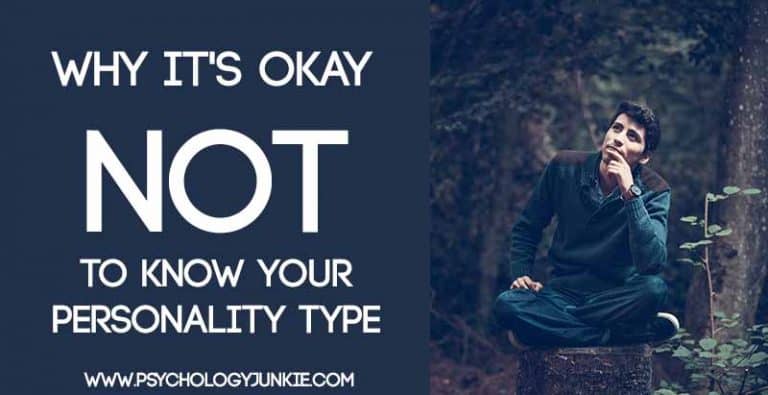
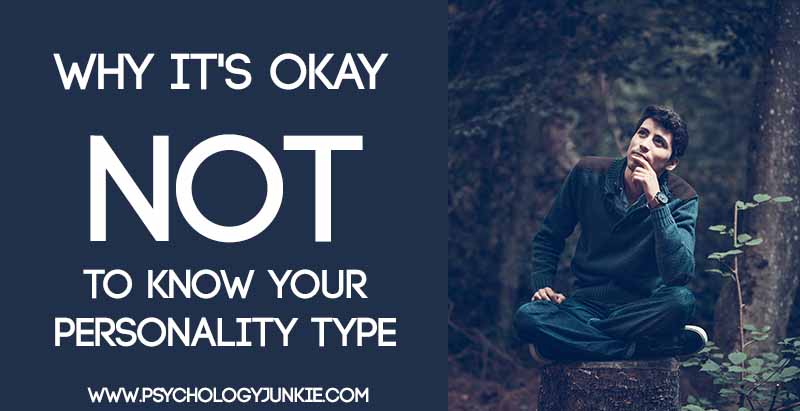


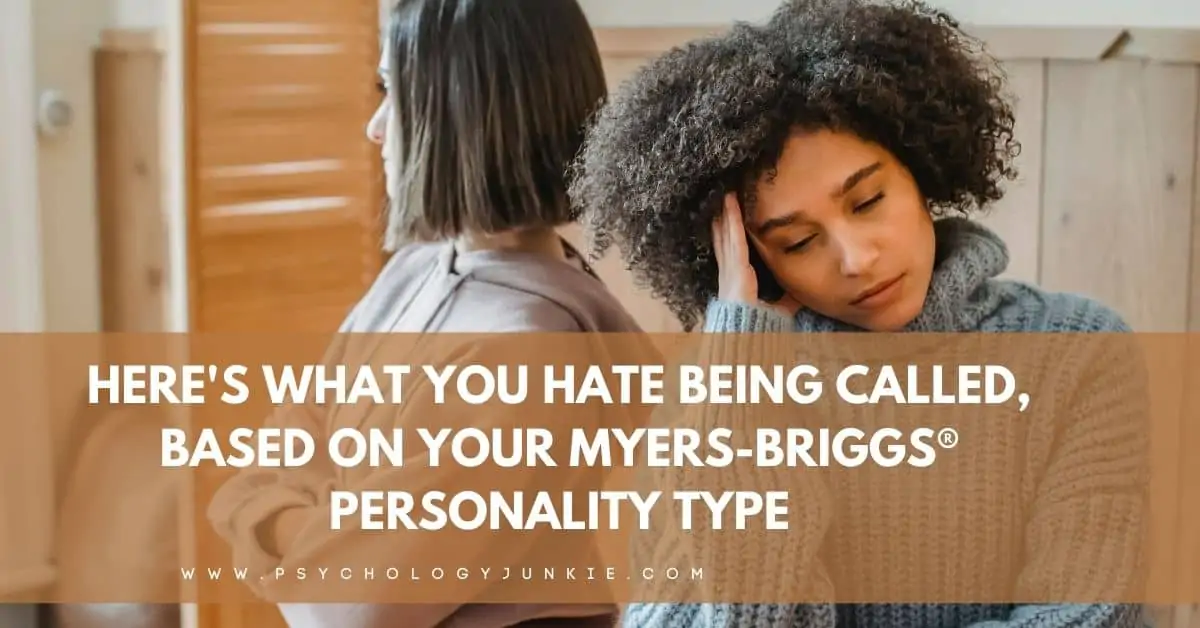




Great article! I learn so much from your posts! I had no clue we even had shadow functions. 🙂
Mahalo!
Lotus
Thank you! I felt very unsure about this post as I was publishing it because I feel like the shadow functions are so hard to describe in a practical, real-life application. I’m glad you enjoyed this and were able to understand it!
This was extremely informative! It breaks everything down and explains it so perfectly it’s hard not to understand (at least from a fellow INFJ’s point of view). I linked this to a few of my close INFJ friends and my husband so I could share this gem. Thank you for breaking the shadow functions down so well! I can never seem to find any helpful information.
Thank you thank you thank you for writing this, I’ve been wondering about what the “shadow functions” really are for a long time, and you went into so much detail in this post. So my sister is an ENFP and that MBTI type is basically the compilation of the INFJ shadow, yet we get along so well (but strangely). You said that when we see these functions expressed in others, we can be repulsed by them, which is true, yet I see so much of her in myself despite being so different. Can you explain the INFJ shadow functions in relationship to the ENFP?
~Gloria
Hi Gloria! I think that perhaps I need to re-write it a little to make it clearer. INFJs and ENFPs get along really well! We are also somewhat attracted to people and intrigued by people who use the shadow functions adeptly. I think it would be a harder thing for an INFJ to get along with an IsTJ possibly because the functions of the IsTJ are the absolute furthest from the INFJs natural functions. The INFJs most unconscious function is introverted sensing, which is the ISTJs dominant function, etc,.. Also the fact that ENFPs favor feeling and intuition over sensing and thinking will give them a natural cameraderie with INFJs, even if the directions are reversed. There may be some conflicts from time to time or differences in behavior, but there is also a similarity. INFJs are more comfortable with those who use Ne and Fi, at least usually, because those are still higher on their function stack, than those who use Te and Si, as those are their absolute most unconscious functions. It doesn’t mean it’s impossible for us to get along with Si>Te users, it just might be harder.
Thank you, thank you! I absolutely loved this! It was clear and concise, and I really appreciated actually having a chance to understand more about the shadow functions. You’re a wonderful writer, and I love reading your well informed and well thought out articles. I hope you have a lovely day!
This article was awsome! It felt like I was naked all the time when I was reading it and I pretty much like this feeling. It fits so perfectly that I ask if maybe you know me from somewhere. 🙂 Thank you! One of my friend (who is an INTJ) showed me this and he’s greatly into MBTI types. Glad he’s found it.
Every single word of this describes me so well!!!! I have always thought something was wrong with me because I can never make a decision and I always seem to have sides coming out that aren’t always mentioned when describing INFJs. I always read that we love harmony, are emotiinal, etc., but to know that when I snap at people, can’t make a decision, or if I’m defensive, I’m still normal! Out of everything I have ever read on my personality type, what I have read from your posts have been the most detailed and insightful. Thank you!
Thank you so much! I am so glad this post has helped you in any way! I definitely think an understanding of the shadow functions can help us to understand ourselves much better!
For ppl who find themselves faced by the Demon- would a refocus on their primary functions be enough to pull them from what they face?
I think it depends on the person to be honest. I do think that we should try to focus primarily on using our primary functions; but not completely ignore our shadow. Write down your Si-themed thoughts and feelings, if they are bad, then reflect on them later when you are in a more balanced state and see how rational/irrational they are. Some people who are facing an inferior function or shadow function response find it helpful to talk to someone who is dominant in that function. For example, as an INFJ with a demon of Introverted Sensing, if I have an ISFJ friend who I trust, I could go to them with my Si-oriented concerns and feelings. While I may not always like their perspective, because it may be so different from my Ni-oriented nature, they may help me to have a more accurate view of what is going on when my Introverted Sensing is going haywire. Does that make any sense? Unfortunately I have not found a lot of good resources for learning about the shadow functions. I have a book I’m waiting to get, and when I read that I’m hoping I’ll have some more answers!
As an INFJ working through depression and anxiety, this made a lot of sense. On my “good” days I easily allow my shadow functions to check my reality, but not overcome it. On really bad days it feels as if such functions are the ONLY thing in control. I see this mostly in terms of my relationships.
Thanks for writing. <3
I feel like the shadows control and ultimately destroy my intimate relationships. How do you fix this???
I think being aware of when you might be having a skewed perspective because you are being influenced by your shadow functions can help, because then you can realize what’s happening as it’s happening, re-evaluate where you’re at, and move forward with a fresh perspective. Sometimes getting some help is the best thing too. Understanding the influence of your shadow function can help you to stop it from possibly causing you problems, but sometimes getting some advice from a good friend or a professional counselor is best too. I’m so sorry you are struggling with relationship issues. I know how hard that is!
Wow, I had no idea what the shadow functions were! As an ENFP, the ‘Critical Parent,’ practically yelled at me. But now I’m SO confused! I thought that we only have four functions and can’t use the ones we don’t have. So I have Ne and can’t have Ni. Could you please enlighten me or point me to a website that explains the shadow functions more? I love how you explain things, so perhaps, if you have time, could you write an intro to shadow functions? It would be greatly appreciated!
I feel like this article slapped me in the face. I loved it.
I’m glad you loved it, although I never meant for it to slap anyone! 🙂
Hi Susan,
I’ve come back to this article today because I’ve spent the day doubting if I’m an INFJ (and INFP instead) because of something I’ve read… so I’ve taken each functioncs and read how they should manifest. Now, this is my question… I know I am not a Ne aux (or Dom, for that matter) but I can be scatterminded at times, or disorganized in my speech (like I am talking about one topic and my mind is thinking about another one so I end up lost for words) and I’ve found myself considering various options for my future and not knowing exactly what I want to be or do… I am also still confused by the Fi-Fe aspect. I have my own internal values but still I am the people pleaser and the social camaleon and I often fail to fight for what I want to do (except with people I feel super confortable with) and prefer to stay home instead of coming up with a counter proposal which would have people “hate” me because they have to accomodate me. I tend to put the blame on me first and I am very concerned about how other perceive me. (gosh, I feel like I am expressing myself in a confused way…)
So the question is… is it possible that I see some Ne of Fi aspect in me due to the fact that I’ve been incessantly working on improving myself for the past 8 years? For example, in the past I’ve taken part to a group therapy focused on giving a name to the feelings I had (It was called ABC therapy, maybe you are familiar with it), which is something I was never able to do and the same with expressing my dreams… I remember my therapist, years ago, asking me: what do you want to do, if I asked you to choose something for yourself, what would you say? And I didn’t know how to answer. This doesn’t sound very Fi to me, or does it? And yet now I am better at it… I am better at giving a name to feelings in general, mine and those of other people… before they just overwhelmed me. Now I deal with them better because I can label then.
I’ve also gotten better at putting my feet down, although not that much (boundaries, I’ve just realized, are going to be my focus in the near future) but I feel I’ve made so much progress already… So I am wondering if this process of getting better and more stable and grounded actually means learning from shadow functions and taking the good stuffs that we can integrate in our own nature to make all functions better…
I need to figure this out so I can stop questioning my type on a regular basis. I keep wondering if when I was younger (and purer) I was different than I am now and it seems neverending, really…
I am so glad to have come across this article (bookmarked!). Going through the adept descriptions of the shadow functions, I could easily having misused each in my past (more distant than recent), but I have more recently engaged them to sort “slow my roll” when I tend to get reactive. There are two things I’d like to mention where I feel like an oddball:
1) The INFJ/ENFP dynamic. It’s stated here and on many other sites that this is an ideal pairing, but for me, ENFPs are incredibly challenging. Within minutes, I can tell when I am interacting with one. Perhaps an ENFP who understands, respects and employs the teachings of MBTI might be better company, but I don’t believe I’ve encountered such a person yet.
2) It is also stated that INFJs are difficult to spot because we have the ability to step into the other 15 types, at least for a period. That being stated, wouldn’t it be beneficial for INFJs to become more familiar with all 8 cognitive functions? Reading through your descriptions, I see that I have actively engaged them in order to see both sides of a discussion.
Great article!
Great read, would love to see the reverse on the ENFP shadow functions.
I definitely want to write an article on the ENFP shadow functions. Just getting through a couple of books related to shadow functions first before I try to do that one 🙂
PLEASE PLEASE PLEASE!! I would love an article on this. What resources would you recommend for researching the shadow functions? I want to learn all I can on MBTI and you are my #1 source.
Awesome. I’m glad today i read this. Some months back I had faced my shadow. Reading the about the demon was true. After seeing how it was beating me up I had to change. I didn’t want to continue losing and here now, I’m trying to learn. I’ve tried to let go of those thoughts and to move onward. Thanks for this
Side note, I’ve watched several different movies to focus on… I guess the other functions? Fight club helped me a lot haha.
Thank you so much for this! Your article really struck home for me. Dealing with chronic stress, I’ve seen a lot of my shadow functions, especially the demon function of introverted sensing. Since I’ve started learning more about my personality type, I’ve been able to focus more on my primary functions as you recommended. It’s encouraging (and stress-relieving) to understand these functions better and to know that I’m not alone in struggling with them.
OMFG! This is so scary accurate about my flaws in thinking.
Holy shit – I know a bit more about me now
Where is the shadow function article for ENFP ?? I would love to learn more 🙂
Working on it! 🙂 I’m hoping to have it up in the next couple of weeks.
Excellent article! I would add that by consciously developing your primary functions, you’re simultaneously and unconsciously developing your shadow.
Soo true. Amazing. Thanks so much for very clear explanation. You sum it up. I thought Im acting on my own without thinking why I am acting like this way but then reading this article gave anwers to my why’s. I also came to think Im being INFP now coz of my long months unable to find my way out situation but its the Introverted Feeling and extroverted sensing controlling me.
This is the first time for me that any sense has been made of the shadow functions and all I can say is “WOW”! I never realized just how much I have lived my life in the 4th shadow function “Demon”. Maybe a topic / article could be done on how to get oneself out of being “stuck” in one function or another?
I look forward to my Tuesday email.
I’ve always been confused about primary/shadow functions, and this was so helpful in clarifying the basics of it! Thank you very much!
I can relate to all three, and it explains a lot. For one thing, I have always been perplexed personally by the fact that, as an INFJ, the focus is supposedly future-oriented, yet I find myself spending an inordinate amount of time ruminating about past mistakes and past failures, including some that go all the way back to childhood (and I’m an aging baby boomer).
Thank you.
From time to time a picture strikes my mind of a past situation i felt terribly embarrassed, lonely, lost or utmost depressed. It’s due to this post, i realized, that it might be my Demon-function that’s harassing mi mind. But, it often happens at any point in time, without consciously feeling threatened.
Your website is absolutely amazing! It’s very understandably written and fascinating. Thank you!
That’s true. The website is greatly comprehensible and highly logically explained. Cheers to being INFJ, the struggles and conflicts, and the to enjoying alone time.
In between things that only go halfway. Neither real, attainable, or avoidable. I thought I was depressed but it turns out I’m a perfectly normal compulsively bleak INFJ. I was paralyzed with boredom the other day and was just looking around my room. Every object I noticed had an image of a already attached to it that could make my heart sink a little more. You can only throw your self off a cliff so many times before it loses meaning. So I could explain that to my self again, I went one by one and lisioned to each immediate sad little piece until it became more and more of a stretch. Until at some point I had to say “comon! Really? I can argue that that, that right there doesnt crunch me at all. In fact it’s pretty awesome. And then one by one forced my self to to present a counter memory that was good. The limitations are limitless and I could die choking on a tic tac so what about that too? Pessimism is illogical broad, we might be functioning accordingly to an external force. I realized its the things that I can’t bare to look at or even remember at this point and have no resolve, that I’m actually feeling and that can be attached to anything. Colloidal gold might add the conductivity to allow synapses to move more freely and get sucked in the usual path of repetitive psychosis(but can be harmful with other prescriptions). . I feel like metacogntive is a type of OCD. It might be nice to live in a less hypothetical world and just have a gut feeling , instead of undermining the undermining that your pretending to not notice that your doing sarcastically, to make a point you already made. Lol
It is just so hard to find my personality type. If I don’t know which side of the brain I am in, how would I know my personality type. I am starting to think that the whole thing is pointless. Why do I have to confuse myself even more.
Okay, I’m really scared here because everything I’m reading about the shadow functions is what I have become. I hate the way I feel inside my skin. I experienced a life altering event (death) 10 years ago and was told I was an unhealthy infj. I had never been interested in personality types, only at the age of 35, my psychology teacher tested the class and I tested as an infj. I remember telling her I wasn’t an introvert 😂 and she explained to me what it meant not what I thought it meant. I was also offended with the fact I judged people, she explained to me what that meant as well. Yes. We all judge people. It’s to our level of awareness that is key. People look at me like I’m crazy when I tell them, people who say they do not judge are the biggest hypocrites of all. And I go on trying to get them to understand it’s kind of innate in all of us it’s just to the level of our awareness that makes the difference. Just like prejudice, it’s not only limited to race, there are prejudices of all things, clothes people wear, hair cuts and colors, tattoos, etc… Prejudice is similar to being biased, your subjective thoughts about above mentioned.
Sorry for getting off topic. My question to you is how do I get back to seeing myself and others, the world, the way I used to and not how I do now ? This is why I feel like I’m a bad seed…. My sense of self is off and so are my perceptions. I also experienced an existential crisis and a really negative dark meaningless view on life and lost faith. I’m praying there is still hope for me to right what I’ve wronged if need be and get myself back healthy and in alignment with my truth, my true self.
It sounds like you are going through a Dark Night of the Soul
Never doubt yourself follow your heart your intuition and never doubt the power of your own mind. You can conquer fear, sickness, disease and even mental health issues. Your heart, mind, spirit, soul and body are infinitely more powerful than what you already believe. Push, endure, torment and then heal.
Gabriel Ton Firth Sr.
Thank you for this very helpful article! The only thing I disagree with is the idea not to refrain from developing the shadow functions. My experience is, that our functions need their shadow sibling to become more balanced. I work a lot on Fi to balance my Fe. In my default mode I’m really bad in knowing what I myself feel and need – so my Fe tends to bulldoze me a lot by making decisions about what is good for everyone else. It’s important for me to get in touch with my own feelings and values to be able to honor my own needs and boundaries as well. What is true though, is, that completely neglecting Fe and following Fi instead wouldn’t be a good idea either. It’s all about balancing them.
I kind of see both. I do feel that it can be helpful to develop the shadow functions at least a little bit… maybe not as much as the ego, but at least some. I think that over the past few years I’ve actually unintentionally & unconsciously have developed some of mine with the exception of the demon function, and maybe a bit of the trickster. It wasn’t until I read this that I could actually see myself doing the top two a lot more now, sometimes even more than my ego functions. That part feels like it’s actually in a good, healthy balance. But that dang demon function gets me really easily… almost every time! When I’m really tired and I have a ton of time to myself, I can literally sit there for hours upon hours… literally all day talking to myself or some imagined friends or therapist and rehash old memories, esp. the negative ones, and its actually a lot harder to remember the positive ones. I will literally waste almost a whole day sometimes just doing that alone and I had actually just done that earlier today. Lol, I felt SO called out!!! 😂😭😂